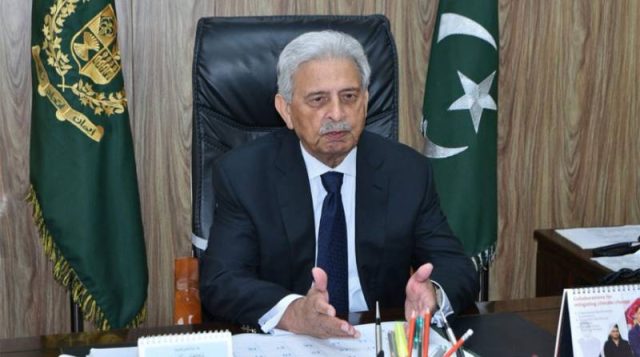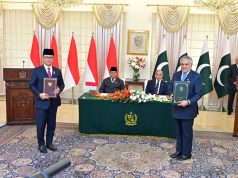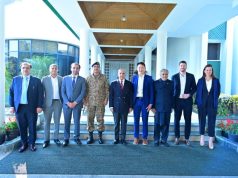LAHORE, Saturday, May 17, 2025 (WNP): Federal Minister for National Food Security and Research, Rana Tanveer Hussain, on Saturday announced that Prime Minister Shehbaz Sharif is spearheading a vision for a “second green revolution” aimed at transforming Pakistan’s agricultural landscape and increasing agri-exports to $125 billion by 2030.
Chairing a high-level consultative meeting at the Pakistan Agricultural Storage and Services Corporation (PASSCO) headquarters, the minister highlighted the federal government’s commitment to overhauling the agriculture, livestock, and fisheries sectors through 28 strategic initiatives.
“These reforms are designed to strengthen value chains, integrate modern technologies, and enhance foreign exchange earnings,” said Rana Tanveer. “Six specialized working groups will drive this transformation by focusing on technology integration, research, mechanization, farmer empowerment, regulatory frameworks, and sustainable growth.”
He praised the Punjab government’s achievements in agriculture and livestock under Chief Minister Maryam Nawaz Sharif’s leadership, citing recent farmer-focused reforms and digital initiatives.
Punjab Agriculture Minister Ashiq Hussain Kirmani, speaking at the meeting, shared details of a Rs. 400 billion agriculture transformation plan currently being rolled out in the province. “Our focus is on enhancing crop yields through advanced seed technologies and introducing high-tech machinery at the grassroots level,” he said.
Kirmani announced that four Agri Malls would be launched this year, with the number expected to rise to ten in the next fiscal cycle. These hubs will serve as centralized platforms for farmers to access inputs, advisory services, and equipment.
He added that farmers are now able to rent modern machinery at the tehsil level. In a major push for financial inclusion, the Punjab government has disbursed Rs. 55 billion in interest-free loans through the Punjab Kisan Card. Additionally, 9,500 subsidised green tractors — each backed by a Rs. 1 million government subsidy — have been delivered to farmers, marking a historic first.
To strengthen agricultural extension services, 1,000 young agriculture graduates have been recruited to provide on-ground technical support. Kirmani also announced that mobile extension offices and laboratories will be established at the union council level next year, offering free soil and water testing and expert consultations.
As part of the Punjab Clean Air Programme, the government is distributing 5,000 super seeders to farmers to curb stubble burning by promoting sustainable rice residue management.
Punjab Chief Secretary Zahid Akhtar Zaman reiterated the province’s commitment to a farmer-centric development model, emphasizing the urgent need to adopt high-quality seed varieties to revive cotton productivity.
Punjab Agriculture Secretary Iftikhar Ali Sahoo pointed to high import and local duties on agricultural machinery as a key barrier to mechanization. “There is a 25% duty on locally manufactured equipment and 35% on imports — these need to be reduced to encourage widespread adoption of modern technologies,” he stressed.
The meeting concluded with consensus on aligning federal and provincial efforts to fast-track the agricultural transformation agenda, ensuring food security, farmer prosperity, and sustainable economic growth.




